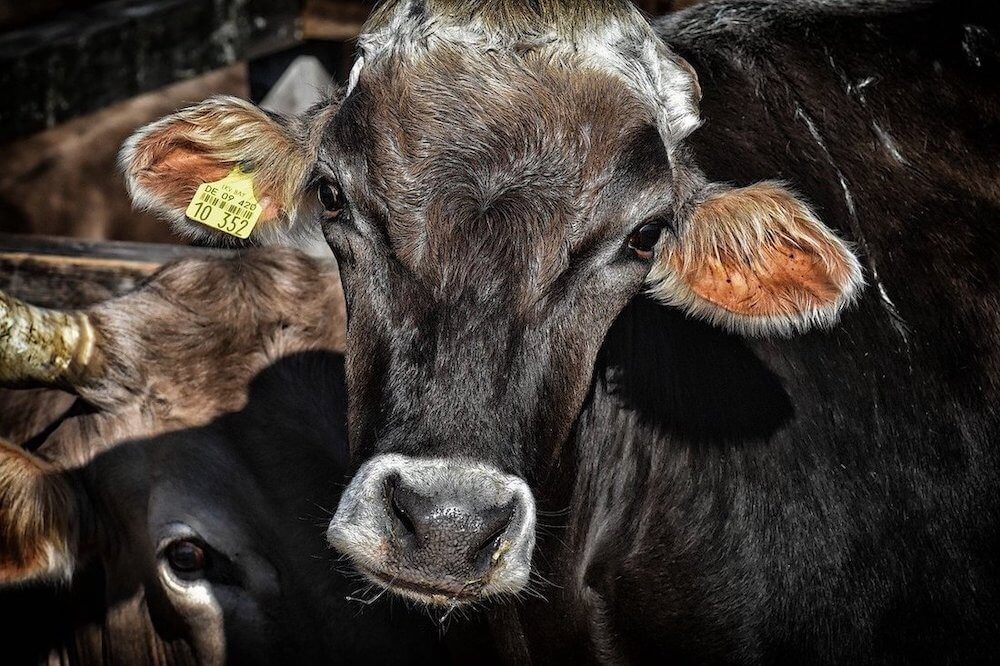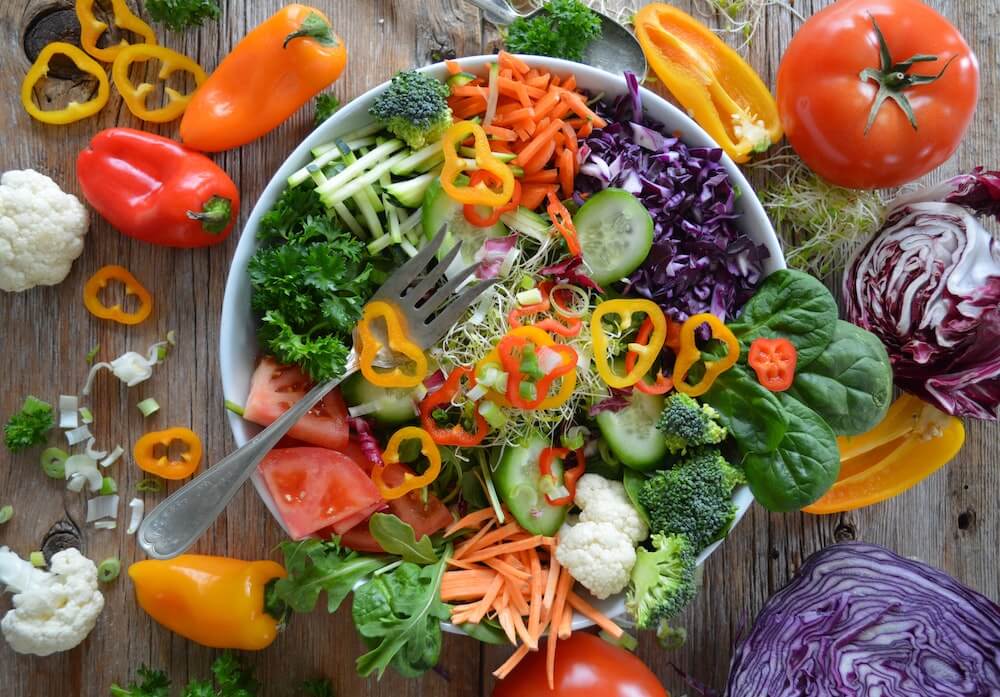You would think that sugar must be vegan, wouldn’t you? So is it true that sugar is processed with bone char?
Unfortunately, yes. Sometimes.
But doesn’t sugar comes from the sugarcane plant or from sugar beets?
Well, believe it or not, a lot of processed sugar is refined using a process that involves bone char.
Oh dear, *sigh*, yet another product to be wary of?
Well, don’t despair, if you choose to keep eating processed sugar, there are ways to avoid the bone char.
Better still, why not opt for some of the more healthy natural sweeteners?
For example all these sweet desserts are sweetened without using processed sugar.
- Exceptional Strawberry Chia Seed Pudding
- Easy Raw Vegan Chocolate Caramel Cake (Gluten Free)
- Are Brownies Vegan? (& GF Oil-Free Vegan Brownies)
- How to Make Easy Raw Vegan Gluten Free No-Bake Cheesecake
- No Bake Protein Energy Balls Recipe (Absolutely Yummy)
But if you really want to keep sugar in your life, in this post we’ll break it down so you know exactly how to keep your sweet tooth vegan.
Table of Contents
How do I Know if My Sugar is Vegan?
- Contact the manufacturer to ask how the sugar is processed.
- Buy sugar that’s labelled ‘vegan’.
- Choose organic sugar (as this won’t be filtered through bone char).
- Beet sugar isn’t filtered through bone char.
- Raw sugar won’t be filtered through bone char.
- Unrefined sugar is free from bone char.
- Despite being free from bone char, there are other doubts surrounding the production of sugar. Read on for more information.
What Is Bone Char and Why is it Used in Sugar Production?
Bone char’s created by heating up bones to very high temperatures in oxygen-controlled environments until they become carbonised.
The carbonised bone char’s then sold to sugar companies around the worlds and used in a filtration process to de-colourise cane sugar and give it the bright whiteness you’ve come to expect from sugar.
According to this article, bones for making bone char comes from cows mainly from Afghanistan, Argentina, India, and Pakistan.
Bone char’s also called natural carbon.
Well, if you didn’t know what it was, you wouldn’t suspect that of being non-vegan, would you!
Natural carbon.
You could imagine anything nice from reading that.
Except burnt bones that is.
Also according to Green Queen, and quoted from a Maryland-based nonprofit Vegetarian Resource Group, it takes 7800 cows to produce enough bone char for one commercial sugar filter.
Wow that’s a lot of bones.
Who would have thought that the white pureness of sugar doesn’t belong to natural sugar at all, but is thanks to yet another commercial system to make it more enticing to us fickle human beings?
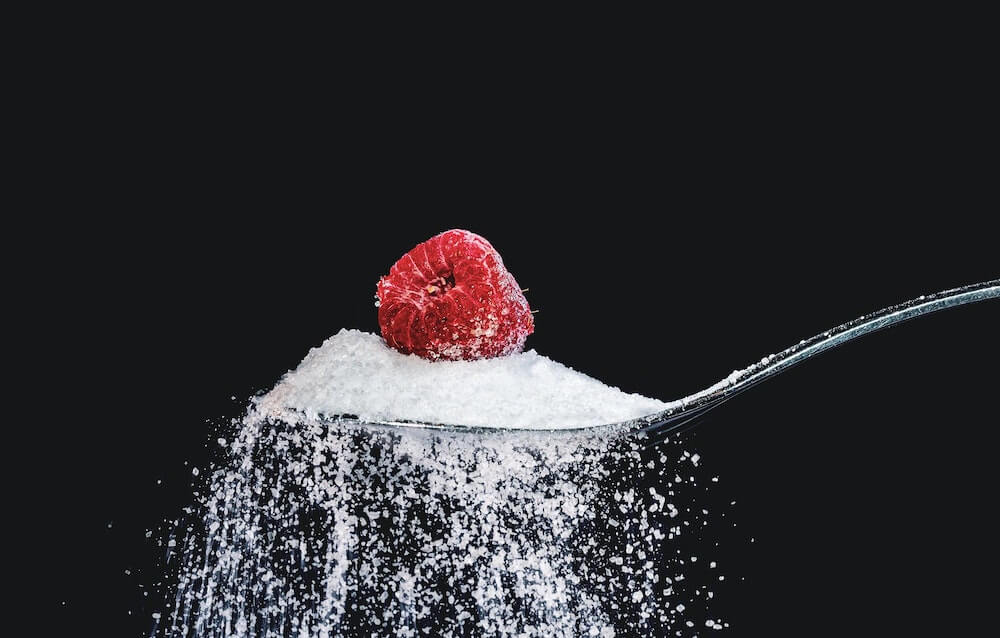
So Brown Sugar’s Free From Bone Char Filtration, Right?
You might think that brown sugar must be safe, as it isn’t white in the first place.
But you’d be mistaken.
Brown sugar, before it’s brown, starts out as any other processed sugar. It’s bleached and filtered just the same to make pure white sugar, then it’s treated with molasses to give it back some brown colour.
So forget thinking that brown sugar’s more natural than white. Not any more baby.
Adios, healthy image of brown sugar.
Can I Tell if My Sugar Has Been Processed with Bone Char?
Unfortunately it isn’t possible to tell from the sugar itself whether bone char was used in the filtration process and there are no legal requirements to declare it.
Therefore, the safest way, if you want to use refined cane sugar, is to contact the company directly and ask whether bone char is used by their processing plant.
In Europe the sale of bone char is heavily regulated and the bones must come from animals which are certified free from BSE. The result of this is that there are more sugar companies making sugar without bone char in Europe and the UK than there are in the USA.
But that doesn’t help us much, because you still can’t tell by just looking at the sugar.
What you can tell though, is which type of sugar you’re using.
And if its made from sugar beets, it won’t have been filtered through bone char. More on bone-char-free sugars below.
Firstly, a look at refined sugar on the whole.
What is Refined Sugar?
Refined sugar’s made predominantly from two sources: sugar cane or sugar beets.
The sugar’s extracted through a complicated multi-stage process, eventually leaving a syrup which is then used to form crystallised sugar.
Refined sugar’s a simple sugar (or monosaccharide) that’s called sucrose. One molecule of sucrose is made up of glucose and fructose. These sugars occur naturally in plants.
Our body uses sugar to create energy and form proteins, though we can also fulfil our sugar needs by breaking down long chain carbohydrates from rice and potatoes etc.
Nowhere in nature would we find such a concentrated form of simple sugar. In its whole state, you would be getting fibre and other nutrients at the same time as a little bit of sugar.
Instead, we have singled out this over-refined food, simple sugar, and developed the habit of adding it to all sorts of other foods.
Negative Health Implications of Eating Refined Sugar
Sugar has a negative health impact on many aspects of the body and mind.
It can lead to: weight gain, type 2 diabetes, obesity, tooth rot, bad skin, heart disease, Alzheimer’s and may be linked to higher risk of cancer and depression.
As if that wasn’t bad enough, sugar’s addictive and it sabotages your ability to feel full, creating a vicious cycle of wanting more food.
It also wrecks your taste buds and lets you taste less and less of the real food while you crave the flavour of the refined simple sugar.
In this post on how to go vegan if you don’t like vegetables we look at how your taste buds can evolve when you give up processed sugar and processed foods.
But even though from a health perspective, it’s best to eliminate processed foods (and the sugar that comes with them), imitation meat still has a useful role, especially for people who want to go vegan but feel the need to start out with replacements such as vegan lasagnes etc.
But the best option, instead of worrying about the use of bone char, a much healthier option would be to adopt a whole foods plant based diet and eliminate refined sugar from your diet completely.
Not only does this make sense from a vegan point of view, but also from a health stance.
I don’t know about you, but I want to eat straight-forward, single-ingredient foods whenever possible.
And I’m a bit fed up with all the millions of added ingredients which have become the norm for modern day eating.
Why can’t a cabbage just be a cabbage anymore?
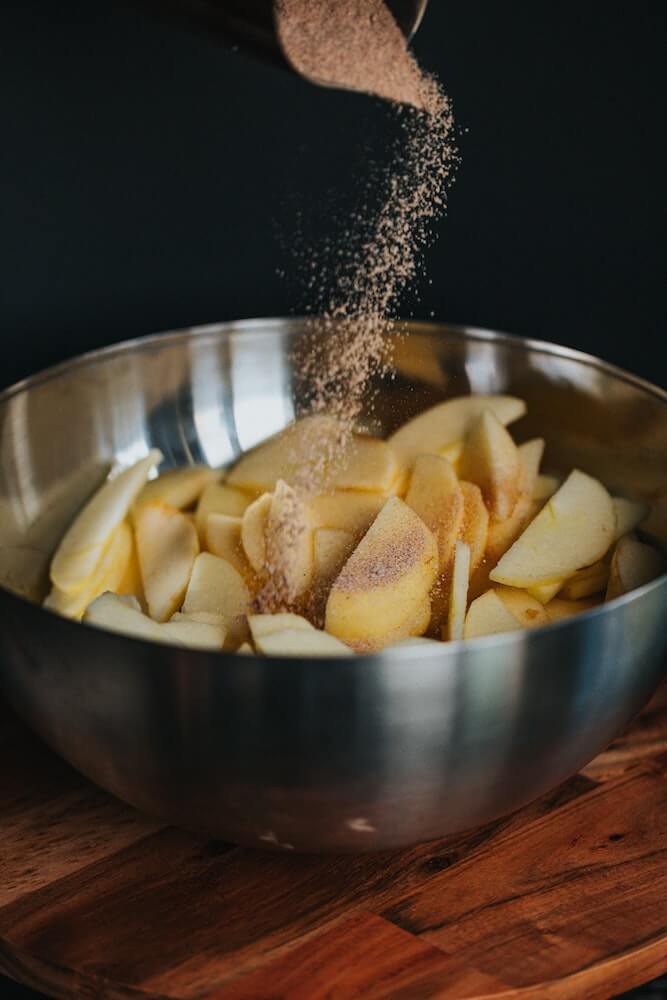
Overview: Types of Sugar
Refined White Sugar from Sugar Cane – Might Not Be Vegan
The standard white sugar most people buy is highly refined.
That includes granulated sugar, caster sugar, sugar cubes, powdered cooking sugar and the common sugar found in product ingredient lists.
White sugar’s been processed and filtered to remove all impurities, and whitened.
This may – or may not – be done using bone char filtration, but there’s no way of knowing just by looking at the sugar.
Processed sugar doesn’t contain bone char but has been filtered through it, and the use of the bones of dead animals from the meat and leather industries is enough to make most vegans hesitate before supporting the industry.

Brown Sugar – Might Not Be Vegan
Brown sugar is white sugar that’s had some molasses returned to it to give it the brown colour.
It’s still a highly refined sugar and still has the same qualities as the white sugar along with the same possibility of being filtered using bone char.
Raw Sugar – Vegan
Despite the name, raw sugar isn’t actually raw.
It’s been cooked and heated just like the processed sugars in order to separate the sugar from the cane but it isn’t as processed as standard white sugar.
Raw sugar has had some of the molasses removed, but not all of it.
The darker types of raw sugar have more molasses added back to them.
Raw sugar doesn’t get bleached so you can safely eat it as part of a vegan diet if it’s only the bone char you’re worried about.
It falls between the refined sugars and the unrefined sugars.
Unrefined Brown Sugar – Vegan
Unlike the normal brown sugar (which has been bleached and then had the molasses added back to it), unrefined brown sugar hasn’t been bleached, and it gets its colour from the molasses naturally occurring in it.
Unrefined brown sugar doesn’t use bone char in its production.
Is Unrefined Sugar Healthier than Refined Sugar?
When you extract sugar from a plant such as sugar cane plant or sugar beets, even if it’s classified as unrefined, it still isn’t a whole food.
When you eat a whole food that contains natural sugar, your body has to work harder to get the sugar and there will be less of a blood-sugar spike, as well as more nutrients from the whole food.
Any type of processed sugar, whether it is refined or unrefined, is unhealthy for you.
Try to replace it with whole foods.
Your body will thank you for it.
Organic Sugar – Vegan
Organic sugar means that the sugar cane or sugar beets weren’t treated with chemicals and pesticides and that likewise in the processing of the sugar, no chemicals are used.
You can buy organic raw sugar and organic unprocessed sugar.
Organic sugar has not been filtered over bone char.
Cane Sugar – Might not be Vegan
It depends on the filtering process used by the manufacturer.
Is Sugar in the UK Vegan?
According to this post from the BBC, most sugar is the UK is vegan because bone char isn’t the most common way to filter sugar in the UK.
In the USA the most common form is using bone char.
However, the BBC adds that icing sugar has egg white added to it so that type of sugar may not be vegan.
Harvesting the Sugarcane – Is that Even Vegan?
On a completely other note, once you start to questions the ethics of our industrial, commercial world, there’s a labyrinth of learning which is actually quite difficult to uncover.
Nobody could accuse the human being of being transparent in business.
And so it is with industry.
Maybe as vegans we have a responsibility not just to read the ingredients but also to check out the ethical production of a product. (But wow, that’s not easy.)
We can seek to support smaller companies who employ people using great working ethics and no animal exploitation.
But it’s a life long task to find and identify such ethical companies and nobody can say that it’s easy.
We can only do out bit. As best as we can.
And every year we can hope that there are more people waking up to becoming more conscious consumers.
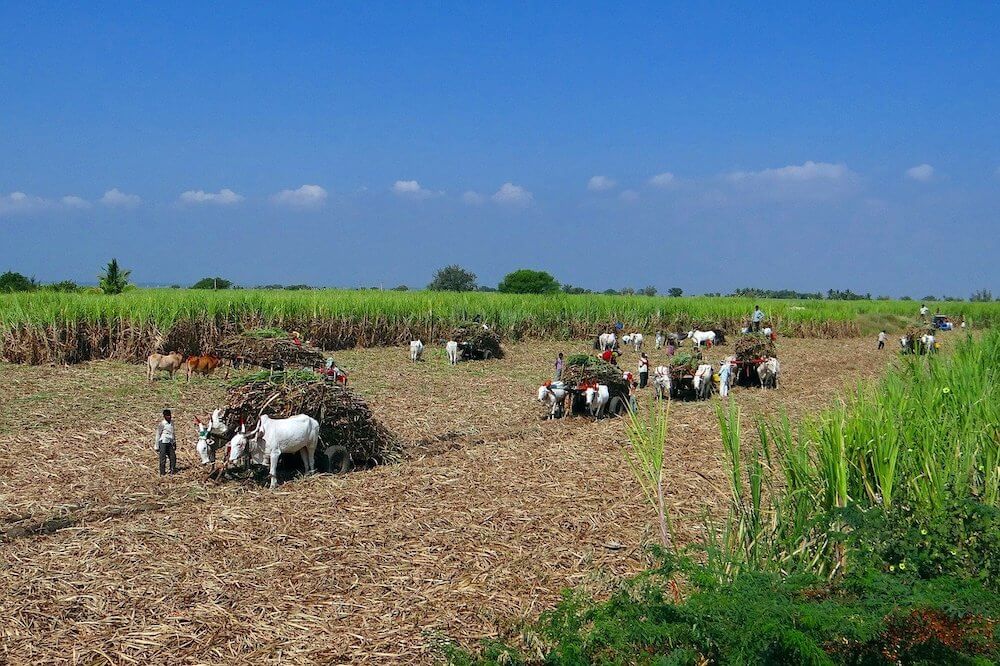
When you go down the rabbit hole of investigating what is and what isn’t vegan, there’s an endless learning curve and continual questions.
And it can be quite daunting to ask yourself where to draw the line as a vegan. But remember that nobody’s perfect and if we just take one step forward from where we are, that’s enough.
We don’t know how the animals are treated in the production of cane sugar. A bit like we don’t know when child labour’s used to produce our clothes.
I mean, it’s a labyrinth.
But that’s another story all together.
It’s like working against the force of our human-industrial-world, trying to buy only ethically produced products.
But we can continue to try.
One step after the other.
What to do About Sugar if You’re Vegan
Regardless of the type of filtration used, vegan or not, processed sugar is an unhealthy food.
Ask yourself the question: do you feel better since switching to a vegan diet? And if the answer isn’t 100% yes, then maybe you should consider giving up sugar.
And even if it isn’t actually lol. Sugar should go. 🙂
It has no health benefits whatsoever, so maybe the best solution’s to look for a vegan alternative natural sweetener instead.
What are Some Vegan Alternatives to Sugar?
- Dates
- Date paste
- Maple syrup
- Stevia
- Coconut sugar
When first going vegan it can be a minefield trying to discover exactly what foods are vegan and which are not, and sugar’s just one of the most common vegan FAQ.
I hope you enjoyed this post and that it helps you to decide whether or not refined sugar is something you want to include in your diet or not.
P.S. My favourite sweeteners are Medjool dates or Maple syrup.

